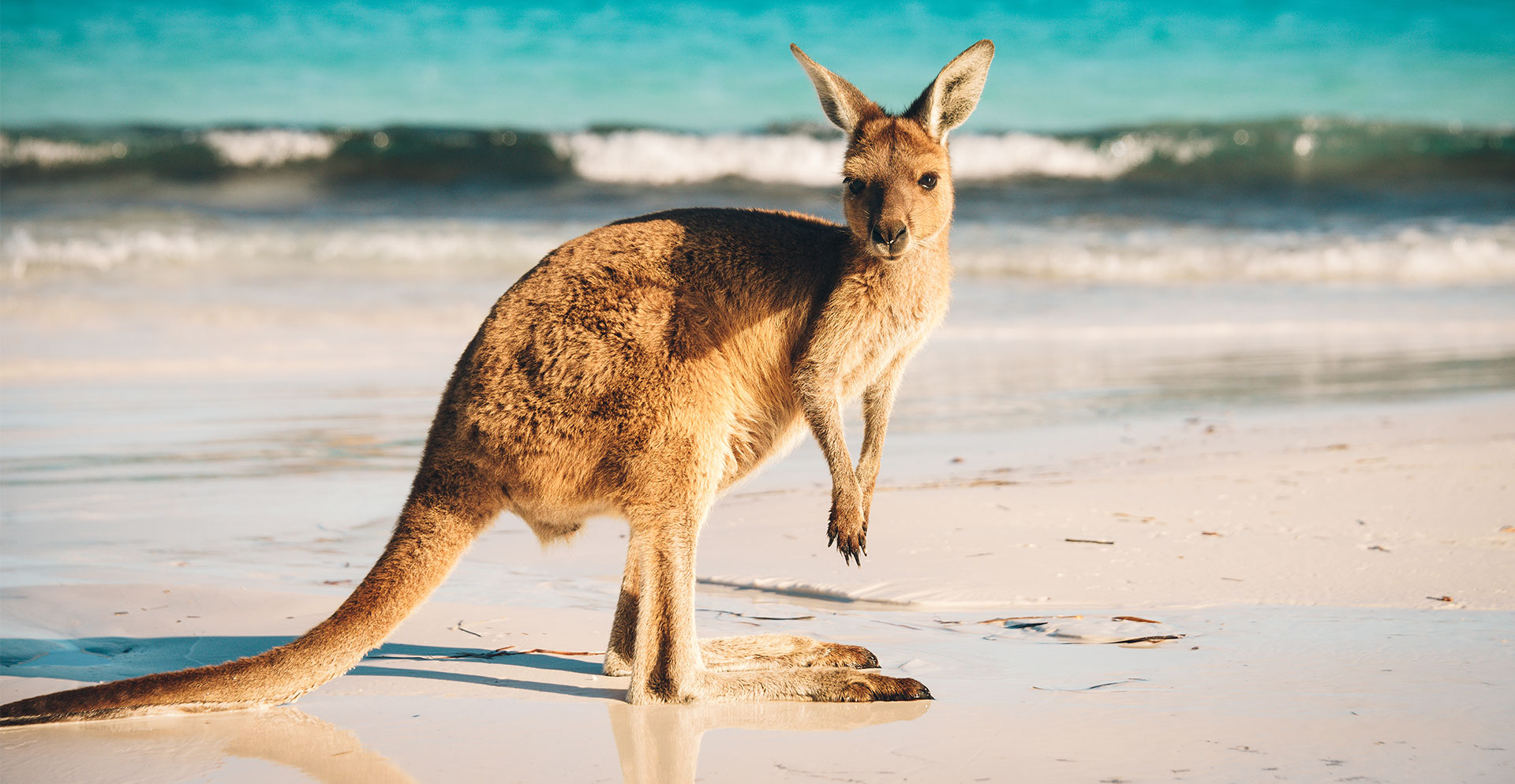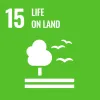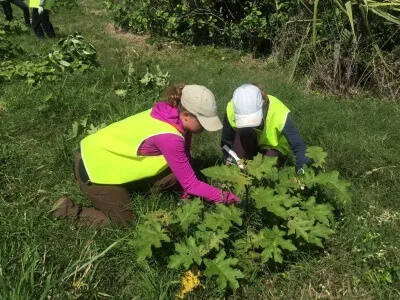Book with complete peace of mind with our Flexible Booking Policy


Volunteer in Australia
Quick Facts
Start Dates : All Year Round
Duration : 1-4 Weeks
Program Locations : Granya
Minimum Age : 18 years+
Certificate : Offered after Program completion
At a Glance
Currency Used : Australian Dollar (AUD)
Language : English
Travel on Weekends to : Explore Melbourne, Sydney or Albury
Meet other like-minded travelers

Program Overview
Volunteer in Australia with Volunteering Solutions on meaningful and ethical wildlife conservation volunteer programs across different cities down under. You can choose to participate as a volunteer in a Wildlife Shelter in Victoria near New South Wales border.The Volunteering Programs in Australia are perfectly designed to provide the participants with an ethical, fun-filled and thrilling experience where they can work for the ecosystem and help to create a better environment.
Gap year travelers and backpackers who are looking for enriching international work experience can travel to the Southern Continent and be a part of these projects, to spend some time amidst nature and effectively contribute towards Nature's wellbeing.
Highlights
- Program based in Victoria
- Meaningful volunteering opportunities from 1 to 4 weeks
- Ethical, Sustainable, Genuine Animal Welfare & Conservation Projects
- Experience firsthand the diverse landscapes Australia has to offer
- Comprehensive in country and UK based support
Best Volunteer Opportunities in Australia
Explore Other Destinations in Oceania and Pacific
Suggested Weekend Travel Options
Programs in Australia are located in different destinations and weekend travel options vary as per the project destination.
Weekend travel options for Volunteers in NSW
When you can get away, some activities you may enjoy from the shelter are nature walks in the forest, wildlife photography, wildlife watching, reading, watching television, and socializing with other volunteers. Depending upon how busy the shelter is (how many animals are at the shelter and new arrivals) and how much free time you get, you can plan your weekends accordingly.
Volunteer in Australia: Frequently Asked Questions (FAQs)
-
How to volunteer in Australia?
-
An Australia volunteer experience is a truly unforgettable way to explore the rich and diverse local culture as well as travelling with a difference. Whether volunteering abroad for the first time or as a returning VolSol alumnus, we can help kickstart your volunteering journey in Australia today! If you’re looking to make a lasting impact on our volunteer programs in Australia and truly become a global citizen, our teams are ready for you to get in touch and help find the perfect volunteering opportunity for you.
The ‘how’ in how to volunteer abroad in Australia is a pretty simple process that our team can guide you through. The hard part is choosing a program that you want to get involved in! Our Australia volunteer programs offer a breadth of opportunities to work with those in need of the support and contributions you can offer. We have two places to volunteer in Australia: Gladstone and Holbrook.
Australia has a rich and diverse ecosystem that is constantly under threat from invasive species and loss of habitat. The varied flora and fauna of the country are integral to maintaining Australia’s ecological balance! Community involvement is also crucial, with many organisations and volunteers actively participating in restoration projects, wildlife rescue, and education programs. Our two NGOs work towards sustainable restoration and conservation of Australia’s wildlife, and you can be a part of it too!
Our other program is based in Holbrook in NSW, and continues with more animal care volunteer work! Our Wildlife Shelter Volunteer Program will allow you to work with injured and orphaned native animals and nurse them back to health! You will be rehabilitating and releasing native animals back into their natural environment. Animal lovers and aspiring vets would find themselves totally immersed in the day-to-day care of vulnerable animals.
Have we piqued your interest? Good! Are you ready to get started? Even better! Volunteering in Australia is only a few clicks away; choose your program, click ‘Apply Now’, complete the registration process, and let us take care of the rest. Get in touch with us today for more information on how we can make your volunteering experience in Australia unforgettable.
-
Why volunteer in Australia with Volunteering Solutions?
-
Volunteering Solutions offers a wide range of programs in over 25 destinations worldwide. In the last 17 years, we have placed over 21,000 international volunteers across various projects and internships, helping them grow personally and professionally while making a difference to the world at large. We’ve hosted teen volunteering groups as well as gap year travellers, youth volunteers as well as family volunteering groups across various destinations.
Not only do we have our experience, but we have many accreditations that attest to our excellence in the field as well as our legitimacy as a volunteering experience coordinator. We are approved by WYSE Work Abroad, Go Overseas, and many other accreditors for volunteering abroad organisations.
We have a dedicated team that ensures that volunteers have a smooth and memorable experience, learning from their peers along the way. From the moment you inquire, through the process of clearing doubts, filling out the application, making payments, accessing the Pre-Departure Guidebook, and reaching the volunteering location followed by Program Orientation – our team supports you every step of the way. We have in-country coordinators and representatives to assist you at the project sites.
Additionally, Volunteering Solutions offers various support services, including:
- Medical and travel insurance at a nominal extra cost
- Fundraising assistance for volunteers facing financial challenges
- Weekend excursions and hikes in Australia
- Local transportation and airport drop-offs for a minimal extra cost
Upon completing your project, you’ll receive a Certificate of Completion, which will significantly enhance your career prospects. This experience will boost your CV/resume and expand your social network. It’s a journey you’ll cherish forever.
Volunteering Solutions also provides tailor-made projects for group volunteering (students, colleagues, or families) where people can work together and explore Australia most uniquely.
-
What volunteer opportunities are available in Australia?
-
Our volunteering opportunities in Australia are as follows:
- Wildlife Shelter Volunteer, Holbrook
No matter which program you choose to be a part of, you’ll definitely have an enriching experience. Programs are available for a minimum duration of 1 week to a maximum of 6 weeks.
-
What are the requirements to volunteer in Australia?
-
Think you could be a great addition to our team? Let us know if you fulfil the following requirements!
- Be at least 18 years or older at the time of joining the project.
- Have an open mind and flexible attitude for working in a new and different environment.
- Should also be proactive and can take initiative.
- Should bring energy and enthusiasm to make a difference.
- Should be open to learning, and be friendly with everyone.
Apart from that, a Criminal Background Check Report is essential for volunteers who are joining Childcare, or Teaching programs. And you should be empathic towards the animals if you want to volunteer for wildlife conservation programs.
-
How much does it cost to volunteer in Australia?
-
Our prices start from as low as £496 in Australia! Here’s what we include:
- Pre-departure support
- Project Information Pack
- Transfers from airport/bus station/train station to the project
- On the job training
- Accommodation
- Meals
- In-country Support
- Certificate Of Completion
-
Can I volunteer in Australia for free?
-
Like everywhere else around the world, volunteering in Australia comes for a minimal fee, which also covers your airport pickup, accommodation, and pre-departure booklet that contains all the information to get you started on your volunteering journey! Other than that, you'll also be provided with meals, pick up and drop from the project site to your accommodation, and most importantly, there will be 24/7 in-country support.
However, you can always fundraise to pay for your meaningful volunteer trip and experience the goodness of travelling abroad to make a difference.
-
Is it safe to volunteer in Australia?
-
We have had volunteer programs in Australia for many years now! Since our inception in 2007, we have sent over 21,000 volunteers to over 25 destinations across the world! We have much experience in providing unforgettable volunteering experiences across the world, and our excellence in the field is a testament to that!
We know what volunteers look for regarding safety and security during their stay. All of our accommodation is located in safe areas, with 24/7 support from VolSol staff. You will be provided with a full orientation about the country, the city, and the local area to ensure you are as best informed as you can be!
Our pre-departure booklet provides comprehensive information about the do’s and don’ts of the area, and how best to respect the cultures and traditions of your destination of choice!
-
Packing essentials for volunteering in Australia
-
Our programs are a little off the beaten track, so not everything you need will be easily available! It’s always best to pack extras of what you usually need just in case. Here’s some basics we recommend taking along with you:
- A hat! The Australian sun can be very damaging, so ample protection is needed!
- Wet wipes, or baby wipes. Due to the rural nature of the projects, readily available fresh water can be limited, so shorter showers or going a day without one is the norm! Bring along some baby wipes to freshen up when water isn’t available.
- In the winter, warm clothes. We often imagine Australia as a very hot country, but they get winters too! And they can be cold. Remember that they have summer and winter the opposite way around to those in the northern hemisphere!
-
What is the best time to volunteer in Australia?
-
Australia is a huge country, with many different climates across its land mass! When is the best time to go depends on where you go. Our programs are in the south and the west of Australia, so the best time to go would be spring (September to November) or autumn (March to May). temperatures are cooler and you can expect less crowds.
-
Who can volunteer in Australia?
-
We welcome volunteers from all over the world and different walks of life! We firmly believe that diversity and inclusion can only make the world a better place. We want to champion global citizens with an international vision and a deep commitment to the betterment of our society. Our volunteers should be compassionate, enthusiastic about change, diligent, and open-minded.
Our projects cater to group volunteering in Australia, as well as family volunteering groups, student volunteering, gap year travellers, as well as teenage travellers looking to expand their horizons.
You can easily apply to volunteer in Australia and be a part of our mission trips by following a few simple steps. Once you have decided which program you wish to join, and in which destination, you can go ahead and fill out the application form here.
You will receive a welcome email from the team, acknowledging your application. We will then send your Booking Confirmation in 7-10 working days. Once you receive your Booking Confirmation you can log into your account to view your trip details and make your final payments.
If you can’t decide which program to join, or where to travel, you can always write to us at info@volunteeringsolutions.com - and our Program Advisors will assist you.
-
How to get a visa for Australia?
-
Before travelling to Australia, please ensure that you meet the following general requirements:
- Your passport must be valid for at least 6 months beyond your expected return date.
- Ensure your passport has at least two blank pages for your visa and other necessary stamps upon arrival and departure.
You also need to check the visitor Visa requirements here.
-
Is it possible to join short term volunteer programs in Australia?
-
We do offer short-term volunteering projects in Australia! If you only have one or two weeks to dedicate to our volunteering projects in Holbrook or Gladstone, we can provide you with a once-in-a-lifetime trip around Australia.
You can truly become a global citizen and work toward the UN’s sustainable development goals! You’ll make an impact locally to those who depend on the NGOs we work with, as well as experiencing the Australian way of life.
The Wildlife Shelter Volunteer Program based in Holbrook has a minimum stay of 1 week, so you can get involved in the welfare of native animals and make a positive impact on the local ecosystem! You don’t need a lot of time to see the work you do in action.
-
Is it possible to join long term volunteer programs in Australia?
-
If you’re looking to stay for longer than 2 weeks, we can help facilitate that! Our projects have a maximum stay of 4 or 6 weeks, so whilst it may not be the lengthy year out you may have imagined, many volunteers use our projects as a way to kick-start their gap years!
Worried that you’ll find yourself bored after a while? We can assure you that there is no way this will happen, especially not on such meaningful projects where your impact can be seen day in and day out! We also have weekend travel options available to you to help enrich your stay.
Want to know more about what trips are available to you? Just email traveldesk@volunteeringsolutions.com for more information on this!
-
Will I have free time to explore Australia during my volunteer trip?
-
Of course, when you are travelling to a new country, it’s obvious that you’d want to explore and experience the area, making the most of your journey. Australia is known for its bustling cities and array of wildlife, so we’re sure we can find the perfect weekend getaway for you!
Gladstone has many options for weekend sightseeing! As a coastal port city, fishing and sailing are pastimes that you could get involved in during your free time. The world-famous Great Barrier Reef is just off the west coast of Australia, making Gladstone a perfect starting point for exploring this vital ecosystem.
You can also check out the local history in the many museums and galleries available! Or hang out as the locals do, and enjoy a deliciously creamy flat white (yes, it’s Australian!) in the sun.
Still have Questions?
Change language & currency
Currency



























